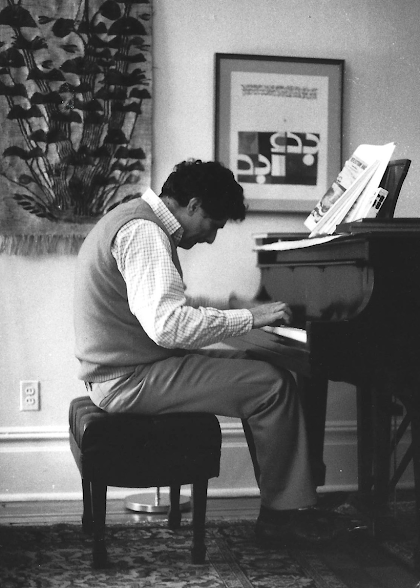I. The State of Israel may be about to commit grave crimes against humanity - ethnic cleansing or genocide - against the people of Gaza. Warnings about this terrible and apocalyptic prospect come from sources as various as Jewish Voice for Peace, the American Middle East news site Mondoweiss, and the respected Palestinian politician Mustafa Bargouthi.
Here is the account of the Gaza Strip given by the renowned Israeli human rights organisation, B'Tselem. This is not up-to-the-minute, but gives essential background:
And here is a video lecture by Sara Roy, a brilliant scholar of Gaza:
(220) Gaza: When is life grievable? Personal reflections on decades of research in Palestine by Sara Roy - YouTube
Here is Dutch scholar Sai Englert on the impending threat of genocide:
Sai Englert, Impending Genocide — Sidecar (newleftreview.org)
II. Irish politicians and commentators, and politicians and commentators everywhere, keep on talking about Israel's 'right to defend itself', but committing crimes against humanity against the civilian population of a territory of which Israel is the occupier is not a mode of self-defence.
III. Irish politicians and commentators, and politicians and commentators everywhere, keep on talking about Israel's 'right to defend itself', but they very rarely talk about the right of the Palestinians to self-determination, and the right of an occupied population to resistance, including armed resistance.
IV. Many commentators make much of Hamas, according to its charter, being 'sworn to Israel's destruction', as a BBC website puts it. There are a couple of things to say about this. First, while it is true that Hamas sees Israel and Zionism as its enemy, it must be recognised that it has done very little to achieve this alleged aim. This is because it is incapable of doing much, militarily, to achieve this aim. Hamas's Izz ad-Din al-Qassam Brigades constitute a popular resistance militia, or 'terrorist group'. But nothing in this formation's military capacity could bring about Israel's demise. On the other hand, while Israel may not be 'sworn to destroy' the Palestinian people', in some explicitly articulated doctrine, its very presence and juridical being is predicated on exclusion of non-Jews, who are, in practical terms, Palestinian Arabs. Further, it is equipped with every modern weapon which such a task might require, and it has done a very great deal to scatter, dispossess, expel, break and destroy the Palestinian people, from 1947 to this day. What is more important - a political-ideological document, or the 'facts on the ground'? The facts on the ground suggest that Israeli policy is driven by the intention to ruin the Palestinian nation in every way possible - political and military but also economic, cultural, legal and social. This is what should be our focus, not the Hamas charter.
V. In Terrorism and the Ethics of War (2010), Stephen Nathanson argues that condemnation of terrorism is really only credible when combined with sincere. unbiased and consistent opposition to the targeting of the innocent, no matter the identity of the killers or the victims, and no matter the cause. This puts most of the condemnation of Hamas we've been hearing or reading in the non-credible category.
VI. Those who demand of Palestine activists that before any other discussion of the Gaza crisis can take place, they condemn Hamas, need to be challenged as to their adhering to the tenets in V above. Where were these blowhards, when the opportunity was presented to condemn the treatment of Gaza over the last 15 years? Where were these blowhards when Israelis murdered or lynched hundreds of Palestinians in the last year? The fact is that the display of moral outrage comes very cheap, and it is always more about virtue signalling and anti-intellectual self-pleasuring than any real thought or understanding. It nearly always is unrelated to a real connection to the people or situation in whose interest it is apparently deployed - indeed, it stands in for and occludes such a connection.
VII. Defenders of Israel who ask Palestine activists not to endlessly have recourse to the past to justify their positions need to cop themselves on and remember the Holocaust.
VIII. Liberals who tell us that violence is committed by 'both sides' need to remember that what we are observing in reality is a rich first-world state, with an economy predicated on advanced technology, with one of the most formidable military apparatuses in the world, which is armed with unacknowledged nuclear weapons, crushing a people without a state, without a standing army or airforce or navy, a people impoverished, scattered and abused, denied most of its rights, dispossessed of its homeland, and armed only with rifles, shoulder-held grenade-launchers and crude unguided rockets of the most limited effectiveness. The 'conflict' is not one of equals, and never has been. As Frantz Fanon once suggested, the native knows that liberal Western 'objectivity' will always be used against him.
IX. In the actions it has taken since the weekend, and in the actions it seems about to take, Israel has enjoyed almost total support from 'the international community' - that is, from the United States and its European allies, including Britain, Germany and France. If ethnic cleansing or genocide are committed by Israel, those other countries will be complicit in these crimes against humanity.
X. Israel removed its illegal settlements from Gaza in 2005, in a unilateral 'disengagement' plan led by Ariel Sharon's government. But Israel has constructed a security fence around the entire Strip (other than along the Egyptian border), and it controls the airspace and the coastline. Israel controls all food supplies, medical supplies, fuel, and electricity for Gaza. Dov Weisglass, a former adviser to the Israeli government, suggested in 2006 of the regulation of produce allowed into Gaza that 'the idea is to put the Palestinians on a diet, but not to make them die of hunger'. An Israeli report, compiled in 2008, but repressed by the government until 2012, revealed that calculations had been made of the calorific intake Gazans needed to avoid starvation and malnutrition. Yet Israel, precisely because of this extraordinary amount of control of the Strip, and in spite of the 'disengagement', remains in international law the occupying power. An occupying power has, in fact, a duty of care to the civilian population under its control. Reducing that population to a condition of 'bare life', in Giorgio Agamben's famous term, is a crime against humanity.
XI. Returning to VI. above, when challenged to 'condemn Hamas', one needs to pause and think. What exactly is at stake in such a demand? What lies behind it? What does the person making the demand hope to achieve by it? It seems to me to be a very particular kind of rhetorical-ideological manoeuvre. Firstly, in any discussion or debate, to make a forcible demand of one's interlocutor is to demand control of the discussion. Second, it is implicit in the demand that the person to whom it is made will be reduced, weakened, arm-twisted, by both the request and the problem of reacting to it, whether or not a 'condemnation' is issued. Third, the language of 'condemnation' is a moral or ethical language, not a political language, and so the demand seeks to shift the ground of discussion from politics to morality. Fourth, the demand is present-ist: it seeks to strip a concrete human and political situation of any of the wider frameworks which help to constitute that situation. Implicit in the demand is the idea that trying to think or learn any kind of background or context, any kind of establishing historical narrative, is irrelevant or even, of course, immoral. To talk of the past or of context is, apparently, to indulge in 'whataboutery', or, as the historians call it, counterfactual speculation. The point, though, is that one party to a purported discussion, in issuing the demand to 'condemn Hamas', is arrogating to themselves the right to police that discussion. And it is incorrect to suggest that seeking knowledge about an action amounts to justifying that action - indeed, a proper 'condemnation' of an action requires a full understanding of what that action was and where it came from.
The overall conclusion one comes to, then, is that the demand to 'condemn Hamas' is more a matter of form than of content. The claim of the person making the demand to be concerned about the situation in Israel or the situation in Gaza, is fictional. The demand is made as a debating point; it is not made from or even seeking to take up, a coherent moral position. The demand should, therefore, be refused.
Here is Judith Butler, in the London Review of Books, saying similar things to me, but saying them better:
And Frédéric Lordon, also:
Conor














